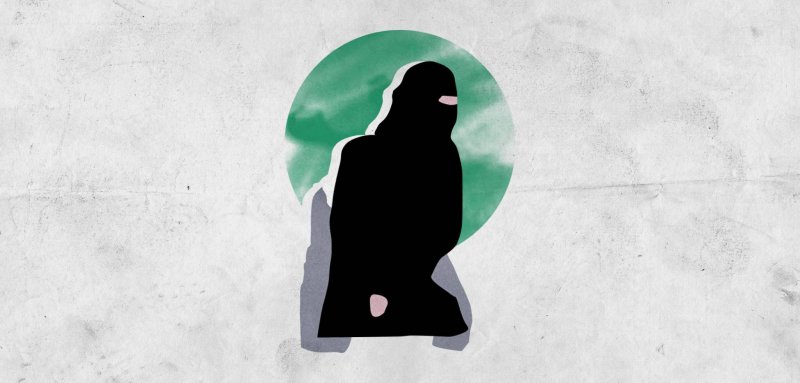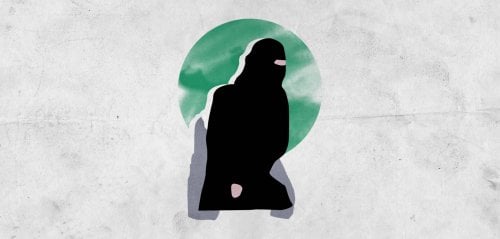What kind of "openness" does Saudi Arabia aspire to? What standards of freedom are allowed? To whom do these apply and how?
These questions arise whenever the net becomes abuzz with a video of a Saudi girl said to have "stirred controversy" with an "improper" appearance.
The last such drama was dubbed "the niqabi dancer" after she lifted her abaya, revealed a pair of jeans, made some dance moves to the tunes of Western music, in the midst of a circle of young men and women in a “Saudi Seasons” event, ending her dance with a twerk , seen as a sexually suggestive dance.
The public uproar against the unknown niqabi dancer came quickly, the Saudi attorney general demanded her arrest. Commenting on the incident, one tweep said: “First we had to endure fundamentalists then Darbawi punks and now we have to endure an increase in the number of floozies, the state waged war against the first, we all agreed to hold accountable the second and now we must stand against the third.”
Another tweep commented “May God spare us the evils of the newly liberated”.
Three Calamities in Our Society
One of the loudest critics of the dancing girl is Saudi broadcast journalist Lojain Omran (currently residing in Dubai) who tweeted: “Unfortunately there are people whose understanding of openness and progress is repulsive”.
This comment didn’t go unnoticed and Omran was met with a backlash for her statements which seem to contradict her chosen lifestyle of “personal freedom” in Dubai where she lives with her sister Aseel Omran.
Activist Malak Shehri commented on how Lojain accepts “openness” for herself and not for others “It’s unbelievable how rude you are, I want to understand why it’s normal for you to live your life as you please dancing, partying, going out and others can’t” as she launched the hashtag #shutup_Lojain.
A young Saudi woman Sawsan considered Omran’s comment to be “outright incitement” adding that she hoped that Omran would be banned from participating in anything involving Saudi because “she does not represent us and she shames us” Omran is just a “selfish social climber that lives on planet Zomoroda” and that she “wants to incite people”.
Omran's tweet opened the door for many Saudi women who reject their community’s restrictions to comment and express their anger at double standards, including a Nahawand (Tweet now erased), who said: “There are three calamities in our society: the first is those who want others to reject what they see as inappropriate, the second calamity is those who reject all that is new and insult it because they are envious, and the third calamity is the hypocrites who deny others what they themselves – these are the mightier than thou types” referring to Omran.
A deluge of tweets attacked UAE resident "emancipated" Lojain Omran, a Saudi journalist who felt she can give Saudi girls lessons in morals while she lives the life in Dubai. Are #Saudi women their own worst enemies when it comes to emancipation?
The Niqabi Girl caught twerking in "Saudi Seasons" festival raises the question: What kind of "openness" does Saudi Arabia aspire to? What standards of freedom are allowed? and to whom do these norms apply and how?
These tweets can be described as "rebellious” or “defiant” and highlight the hope that many Saudi have to break the system that was imposed on them. They can be read on the hashtag #shutup_lojain.
Provocative and Contradictory
Besides this, it’s interesting to note the support for the “unconventional” Saudi girl through the hashtag #the_dance_of_the_niqabi_at_Saudi_Seasons.
One tweep said “The situation is provocative and contradictory at the same time. They allow foreigners to go around without Abayas, and are allowing concerts and opening Saudi up to tourism… if she were a foreigner would she have been arrested?
A young Saudi woman tweeted “did you forget the men dancing at the Saudi Seasons? nobody criticized them, a corrupt patriarchal society”. Another tweep sent a plea to Turki Al-Sheikh Chairman of the General Authority for Entertainment. “I hope you intervene to save the girl, if the news that the attorney general demanded her arrest, there would be a media response to this that would take us back to point zero”.
Not the First Incident
The incident of the dancing and the warrant for the girl’s arrest is considered “normal” and is not the first incident of this kind. In July 2018, the media reported that a 17-year-old Saudi girl, who jumped on the stage to hug the artist Majid al-Mohandis in Okaz market faced a prison sentence and a fine ($ 27,000) for harassment.
Social media was up in arms when the girl jumped on stage in an abaya and niqab and was chased by security officers who arrested her for "immoral behavior."
The Saudi newspaper "Al-Madina" quoted sources in the Public Prosecution saying that the girl "confessed that she hugged al-Mohandes voluntarily after she was encouraged to do so by her friends.”
In a similar context, the General Commission for Audiovisual Media in Saudi Arabia investigated TV presenter Shireen Al Rifaie for wearing "indecent" clothing while reporting on Saudi women driving in June 2018.
Raseef22 is a not for profit entity. Our focus is on quality journalism. Every contribution to the NasRaseef membership goes directly towards journalism production. We stand independent, not accepting corporate sponsorships, sponsored content or political funding.
Support our mission to keep Raseef22 available to all readers by clicking here!
Interested in writing with us? Check our pitch process here!






